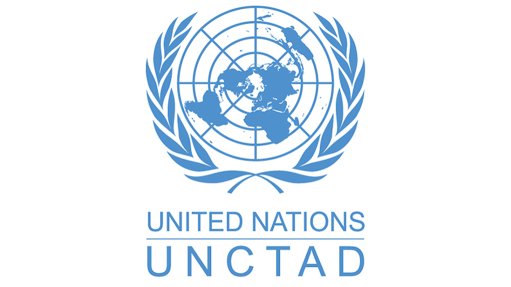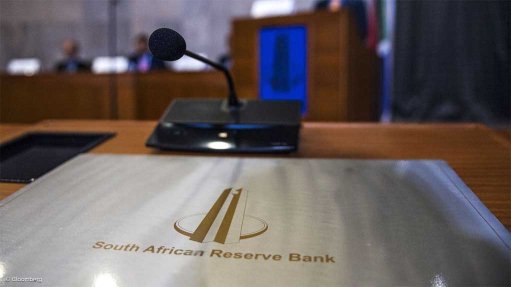Kenya’s economy rebounds but ‘hustlers’ don’t feel it
Arriving in Kenya from South Africa, the business visitor immediately feels the benefit of Kenya’s long-term incremental and consistent improvements in the business operating environment. This is most visible in its investments in infrastructure – investment which has the private sector at its heart, but which is also making Kenya a more viable investment destination.
Kenya Airways (KQ) from Cape Town to Nairobi was packed to the wings with businesspeople, tourists and a troupe from Zimbabwe heading for a climate change convention. The airline has replaced formerly biweekly flights stopping in Livingstone, Zambia, with a direct daily flight from Cape Town and is replacing its two-aisle city-hopper Embraer with wider-bodied Boeing 737-800s to meet demand.
The airline was forced to restructure after Covid shocks, among other things. A listed entity, it is 48% State owned but commercially run with private investors including Dutch- and French-owned KLM and KQ employees owning shares. Bit by bit, it is increasing its geographical reach – upping its flights to London to 14 weekly and serving 33 African destinations. It will be in prime position to benefit – alongside Ethiopian airlines – from the ‘open skies’ component of the Africa Continental Free Trade Agreement.
To boost traveller demand, Kenya has scrapped the panoply of ten-day visas, business visas, multiple entry visas, and visas on arrival and replaced them all with a single electronic travel authorisation –which also cuts the cost of the old visa from $50 to $34. The sting in the tail is that while Kenya calls it a visa-free policy, the ETA and its $34 fee apply to all those travelling by air to Kenya, including from the 53 other African nations.
Out of the new terminal, the business visitor is swept onto Kenya’s brand-new e-toll road. Financed and built by China Road and Bridge Corporation as part of Kenya’s public–private partnership programme on a 30-year concession, the toll road has slashed travel time from the airport to the city centre from one to two hours a couple of years ago to just 15 minutes. Toll-road highways, run by what are colloquially known as ‘P3’ concessions, are opening in other parts of the country too. All the way along the highway is brightly lit, bringing to mind Kenya’s most successful P3 – the expansion of renewable electricity supplies, which embassy officials claim now contribute to 90% of Kenya’s electricity needs. With geothermal supplementing hydro, wind and solar, power outages are a thing of Kenya’s past.
The ETA delivered on a state-of-the-art smartphone application which showcases the extent of the digitalisation of the Kenyan economy. Uber has expended locally into Uber-everything, from ‘boda-boda’ motorbike taxis to a parcel delivery service. The power of the global gig-economy company is felt locally, too, as Uber cars now have clear official markings. According to one driver, this means they have very few problems from Kenya’s notoriously avaricious traffic police.
Perhaps most startling is the deepening of digital wallet functionality that telecom company Safaricom provides through M-Pesa. Kenyans, who were among Africa’s least ‘banked’ two decades ago, now routinely pay day-to-day expenses, mortgages, loans and school fees through M-Pesa without ever seeing the inside of a banking hall. Figures are disputed between the regulator and the central bank, but the central bank estimated in 2022 that monthly M-Pesa transactions were valued at $6 billion a month.
But not all is well in Africa’s most digitally advanced economy, despite the great leaps in technology and the prospect of a robust return to growth of 5.5% in 2024. There is pervasive unease, which has its roots in the near- universal lack of trust in government – most notably because of widespread and continuing corruption.
One channel for disaffection is the expanding e-citizen portal for all government services, which is facing several court challenges. Designed as a one-stop shop platform for all government interactions, first mooted under Mwai Kibaki’s Presidency (2002–2013) and originally designed to clear out corruption with digitalisation, the e-citizen is now a daily reality for Kenyans. They must use it to access and pay for government services like driver’s licences, passports, business registrations and, most recently, school fees.
The site has started to face resistance, notably over opacity in the management of the billions of Kenyan shillings collected. Local media report that the last two auditor-general reports highlighted its inadequate internal controls and risk management systems. Discrepancies reportedly exist between the amount of money transferred from the e-citizen platform and the amount received by the State. For Kenyans, it again raises fears that those behind the e-citizen are raking off substantial sums. What irks people most is the ‘convenience charge’ – local media give the example of using the site to pay the entrance to a government park and having to pay 50% again in charges for the ‘convenience’ of using the site.
It’s now just over a year since William Ruto became President in September 2022, promising to focus on improving conditions for what he termed ‘the hustler nation’ – the poor hustling daily to survive. But analyst say Kenya’s infrastructure spending spree was costly, saddling it with a huge external debt, some of which is coming due in June. It is a point of pride to Kenyans that they should not default as Zambia and Ghana have done, but they feel keenly that they are now paying for the decade of infrastructure spend. Inflation at 6% hurts, too.
The retired official expresses real concerns about “marginalised areas” far from Nairobi and the tourism-rich coast – namely the north-western counties of Marsabit, Turkana and West Pokot, arid territories that lost up to five-million head of livestock in a chronic two-year drought deepened by climate change and extended by El Niño that ended in 2023.
While large coffee and tea plantations and exporters received government support over the drought, the hustlers among cattle, camel and goat herders received nothing and have nothing to fall back on except adding to the banditry problem in these regions. For their ‘excellencies’ to deliver local development might be a long wait, yet Kenya’s long-term security and stability makes imperative that entrepreneurs and agri-tech innovators spread their genius and find climate resilience solutions that will help end this marginalisation.
Article Enquiry
Email Article
Save Article
Feedback
To advertise email advertising@creamermedia.co.za or click here
Press Office
Announcements
What's On
Subscribe to improve your user experience...
Option 1 (equivalent of R125 a month):
Receive a weekly copy of Creamer Media's Engineering News & Mining Weekly magazine
(print copy for those in South Africa and e-magazine for those outside of South Africa)
Receive daily email newsletters
Access to full search results
Access archive of magazine back copies
Access to Projects in Progress
Access to ONE Research Report of your choice in PDF format
Option 2 (equivalent of R375 a month):
All benefits from Option 1
PLUS
Access to Creamer Media's Research Channel Africa for ALL Research Reports, in PDF format, on various industrial and mining sectors
including Electricity; Water; Energy Transition; Hydrogen; Roads, Rail and Ports; Coal; Gold; Platinum; Battery Metals; etc.
Already a subscriber?
Forgotten your password?
Receive weekly copy of Creamer Media's Engineering News & Mining Weekly magazine (print copy for those in South Africa and e-magazine for those outside of South Africa)
➕
Recieve daily email newsletters
➕
Access to full search results
➕
Access archive of magazine back copies
➕
Access to Projects in Progress
➕
Access to ONE Research Report of your choice in PDF format
RESEARCH CHANNEL AFRICA
R4500 (equivalent of R375 a month)
SUBSCRIBEAll benefits from Option 1
➕
Access to Creamer Media's Research Channel Africa for ALL Research Reports on various industrial and mining sectors, in PDF format, including on:
Electricity
➕
Water
➕
Energy Transition
➕
Hydrogen
➕
Roads, Rail and Ports
➕
Coal
➕
Gold
➕
Platinum
➕
Battery Metals
➕
etc.
Receive all benefits from Option 1 or Option 2 delivered to numerous people at your company
➕
Multiple User names and Passwords for simultaneous log-ins
➕
Intranet integration access to all in your organisation


















